If only you could see what this city looked like before it was bombed in the war; and then compare it to now, the end product of restoring and rebuilding. Which city? It could be:
 London
London- Berlin
- Tokyo
- Hiroshima
- Saigon ==> Ho Chi Minh City
- Sarajevo
The list could be extended to include one bombed-out city after another. Fortunately, that list will not include any Caribbean cities. This is fortunate for “no lost of life”, but unfortunate for no post-war restoration-rebuilding. Yes, the imagery of the mythical Phoenix Bird is best applied to a city that was bombed-out and then rebuilt after the war.
Nonetheless, we need that Phoenix Bird here in the Caribbean. We need to restore, rebuild and “rise from the ashes”.
Question: War – what is it good for?
Answer: Rebuilding after the war.

Consider this example of Dresden, Germany.
This is the continuation of the June 2020 Teaching Series from the movement behind the 2013 book Go Lean…Caribbean; this is entry 5 of 6. This movement presents a Teaching Series every month on a subject that is germane to Caribbean life. There is the accepted fact that it is OK to make changes – reform and transform – in response to any crisis; in fact there is the popular expression “a crisis is a terrible thing to waste”. Our focus this month is related to the current crisis – think Coronavirus COVID-19. We are looking at how-when to Rise from the Ashes from this and other crises. For this entry, we lament the absence of perhaps one of the greatest motivators for change, War.
The full catalog for this month’s series is listed as follows:
- Rising from the Ashes – The Phoenix rises from the Pandemic
- Rising from the Ashes – One person – Dead or Alive – can make a difference
- Rising from the Ashes – Natural Disasters – The Price of Paradise
- Rising from the Ashes – Political Revolutions – Calling ‘Balls and Strikes’
- Rising from the Ashes – War – “What is it good for?” – ENCORE
- Rising from the Ashes – Wrong Ethos could also rise – Cautionary tale of patriotic German Jews
There are other Agents of Change that we have had to contend with here in the Caribbean. The Go Lean book identified these 4 agents: Technology, Climate Change, Globalization and the Aging Diaspora. These crises – though not as impactful as a war – also allow us to make changes. We have presented this thesis in many other blog-commentaries; consider this sample:
| https://goleancaribbean.com/blog/?p=19694 | Technology Assimilation: E-Learning Eco-system is finally mature |
| https://goleancaribbean.com/blog/?p=19669 | Technology Assimilation: Work From Home options bring opportunities |
| https://goleancaribbean.com/blog/?p=19568 | BHAG – Need ‘Big Brother’ for Global Pandemics |
| https://goleancaribbean.com/blog/?p=19351 | Preparing Alternate Energy to abate Climate Change |
| https://goleancaribbean.com/blog/?p=18817 | Deficiencies in Food Security have created a Plan for our ‘Bread Basket’ |
| https://goleancaribbean.com/blog/?p=18243 | After Hurricane Dorian, Regionalism is no longer optional |
| https://goleancaribbean.com/blog/?p=17878 | Profiting from the Migration Crisis |
| https://goleancaribbean.com/blog/?p=16368 | Aging Diaspora – Finding Home … anywhere. |
| https://goleancaribbean.com/blog/?p=15935 | Learning from the Master: “A crisis is a terrible thing to waste” |
The crisis of an active war in the region would be earth-shattering here in the Caribbean; there would be good, bad and ugly consequences. The theme of lamenting the absence of war in the Caribbean had been published in a previous Go Lean blog-commentary. It is only apropos to Encore that submission – from July 21, 2019 – here and now:
—————-
Go Lean Commentary – What Went Wrong? ‘We’ never had our war!
War … what is it good for?
Absolutely nothing! – Song: Edwin Starr – Motown 1969; see Appendix below.
Well, not so fast.
This started just as a “catch phrase”, but now it has emerged as a fact in Economic History:
A crisis is a terrible thing to waste.
So what is war good for? Providing a crisis that can be exploited to reform and transform society.
That’s it; wrap it up; we can now summarize so many changes in world history as they manifested as a result of war. Consider these examples:
| War Conflict | Take-a-way |
| Napoleonic Wars | 1803 – 1815 Spanish New World assumed independence from Spain. This was true in North America (Mexico), Central America and South America. But the Caribbean territories did not abdicate from “Mama Espana” at that time. |
Latin America Independence |
| American Civil War | 1860 – 1865 The New World was premised on Slavery, exploiting the African race as a free labor source in all the Americas. This abhorrent institution would have definitely ended, one way or another. “The arc of history leans towards justice”. After the US Civil War – 625,000 dead White Men – no other wars were necessary in the New World; all Euro-influenced governments whittled slavery into extinction, one way or another. |
Abolition & Emancipation |
| Great War / World War I 1914 – 1919 This war addressed the boiling point of class-ism in Europe – the Haves versus the Have-Nots – the Nobility System (Dukes, Counts, Bourgeoisie, etc.) did not survive the reconciliation that led to the cessation of conflicts. Communism emerged as a manifestation of the demand for equality. |
Gender Equality; Worker Rights; Egalitarianism |
| World War II / Cold War | 1939 – 1955 This war was a sequel to WW I; whatever remaining issues that were deferred in the WW I reconciliations were pushed forward for reckoning; think: Colonialism (in Africa, Asia and the Americas), Racial Supremacy, Human Rights assurances. |
Human Rights; Decolonization; Majority Rule / Universal Suffrage |
| End of Cold War | 1991 – 2016 The return to Nationalism in Europe did not provide governing solutions or the needed multi-racial reconciliations. That bill came due, as demonstrated with the Balkans Conflict (Bosnia, Serbia, etc.). A Migrant Crisis emerged for all States that refused to transform: think Middle East Islamic Fundamentalism, Sovereign Debt Crisis (Greece, etc.), and Brexit. |
Economic Liberalization; Free Trade; Free Movement |
In no shape or form are we rationalizing, justifying or excusing war. But, it is what it is!

Where there is conflict – blood on the streets – people tend to finally be motivated to remediate and mitigate the risks and threats for the conflict to ever rekindle. So this premise is true:
This is why we can declare with such confidence that one of the things that went wrong in the Caribbean, is “we never had our war“. From the foregoing examples, all the reform and transformation that took place from these crises, did NOT benefit the Caribbean as we had “No War” here. (The Cuban Revolution ushered in Communism, but all the stewards of the Cuban people – culture, politics and commerce – simply fled; they left the island to the rebels, so the needed reform on societal values never took place – Cuba is still in “Freeze-Frame” from 1959).
This commentary continues the July series from the movement behind the book Go Lean…Caribbean. This submission, 2-of-6 on the theme “What Went Wrong?” focuses on Caribbean history and why we still have many of the same defects that other societies – think North America and Europe yes, but even India and China – have already remediated. The full catalog:
- What Went Wrong? Asking ‘Why’ is Important
- What Went Wrong? ‘We’ never had our war!
- What Went Wrong? ‘7 to 1’ – Caribbean ‘Less Than’
- What Went Wrong? ‘Be our Guest’ – The Rules of Hospitality
- What Went Wrong? Failing the Lessons from Infrastructure 101
- What Went Wrong? Losing the Best; Nation-building with the Rest
In this series, reference is made to the need for a comprehensive roadmap for elevating the societal engines of the Caribbean member-states. We do not want war! But we want to make the progress that is possible when society reforms and transforms. And we want to do this without a war. The movement behind the Go Lean book asserts that this progress is possible. See how this theme was developed in many previous Go Lean commentaries; see a sample list here:
| https://goleancaribbean.com/blog/?p=16477 | Transforming Hindus versus Women – What it means for us? |
| https://goleancaribbean.com/blog/?p=15580 | The Cause of Caribbean Disunity: Religion’s Role – False Friend |
| https://goleancaribbean.com/blog/?p=14633 | Despite Embedded ‘Bad Nature’, Women Have Nurtured Change |
| https://goleancaribbean.com/blog/?p=14378 | Legislating Morality – Yes, We Can |
| https://goleancaribbean.com/blog/?p=13063 | Gender Equity without a ‘Battle of the Sexes’ |
| https://goleancaribbean.com/blog/?p=13882 | Managing ‘Change’ in California – Calm and Smooth Evolutions |
| https://goleancaribbean.com/blog/?p=5695 | Repenting, Forgiving and Reconciling the Past |
| https://goleancaribbean.com/blog/?p=3090 | Learning from Modern Europe – Evolution without Revolution |
Most of the Caribbean profess the religious affiliation with Christianity. The Founder of the Church, Jesus Christ, taught his followers an important lesson about manifestation versus faith. See here relating the story of Doubting Thomas:
A doubting Thomas is a skeptic who refuses to believe without direct personal experience—a reference to the Apostle Thomas, who refused to believe that the resurrected Jesus had appeared to the ten other apostles, until he could see and feel the wounds received by Jesus on the torture stake.
The Holy Scriptures relates, from the Gospel account of John 20: 24 – 29 NWT:
… 24 But Thomas,+ one of the Twelve, who was called the Twin, was not with them when Jesus came. 25 So the other disciples were telling him: “We have seen the Lord!” But he said to them: “Unless I see in his hands the print* of the nails and stick my finger into the print of the nails and stick my hand into his side,+ I will never believe it.”
26 Well, eight days later his disciples were again indoors, and [this time] Thomas was with them. Jesus came, although the doors were locked, and he stood in their midst and said: “May you have peace.”+ 27 Next he said to Thomas: “Put your finger here, and see my hands, and take your hand and stick it into my side, and stop doubting* but believe.” 28 In answer Thomas said to him: “My Lord and my God!” 29 Jesus said to him: “Because you have seen me, have you believed? Happy are those who have not seen and yet believe.”
 Happy are those who have not seen and yet believe. While it is only at the precipice that people change, how much better it would be for Caribbean society to change (reform and transform) without being at the precipice, without enduring the pangs of war. It is the assertion here that despite the heavy-lifting, “we” can succeed in optimizing Caribbean society … without war.
Happy are those who have not seen and yet believe. While it is only at the precipice that people change, how much better it would be for Caribbean society to change (reform and transform) without being at the precipice, without enduring the pangs of war. It is the assertion here that despite the heavy-lifting, “we” can succeed in optimizing Caribbean society … without war.
Is this possible? Can we reboot our society? Can we ‘weed out’ the bad ethos – i.e. rent-seeking and domestic violence – in our communities and adopt new more positive ethos? Can we implement the strategies and tactics we need to optimize our society, without first going to the brink of self-destruction?
Yes, we can!
This is the urging of the book Go Lean…Caribbean and the resultant roadmap. We hereby urge all Caribbean stakeholders to lean-in to this roadmap. Let’s get busy and go to work. This roadmap is conceivable, believe and achievable. We can make our homeland a better place to live, work and play. 🙂
About the Book
The book Go Lean…Caribbean serves as a roadmap for the introduction and implementation of the technocratic Caribbean Union Trade Federation (CU), for the elevation of Caribbean society – for all member-states. This CU/Go Lean roadmap has these 3 prime directives:
- Optimization of the economic engines in order to grow the regional economy to $800 Billion and create 2.2 million new jobs.
- Establishment of a security apparatus to ensure public safety and protect the resultant economic engines.
- Improve Caribbean governance to support these engines, including a separation-of-powers between the member-states and CU federal agencies.
The Go Lean book provides 370-pages of turn-by-turn instructions on “how” to adopt new community ethos, plus the strategies, tactics, implementations and advocacies to execute so as to reboot, reform and transform the societal engines of Caribbean society.
Download the free e-Book of Go Lean … Caribbean – now!
Who We Are
The movement behind the Go Lean book – a non-partisan, apolitical, religiously-neutral Community Development Foundation chartered for the purpose of empowering and re-booting economic engines – stresses that reforming and transforming the Caribbean societal engines must be a regional pursuit. This was an early motivation for the roadmap, as pronounced in the opening Declaration of Interdependence (Pages 12 – 13):
xi. Whereas all men are entitled to the benefits of good governance in a free society, “new guards” must be enacted to dissuade the emergence of incompetence, corruption, nepotism and cronyism at the peril of the people’s best interest. The Federation must guarantee the executions of a social contract between government and the governed.
xvi. Whereas security of our homeland is inextricably linked to prosperity of the homeland, the economic and security interest of the region needs to be aligned under the same governance. Since economic crimes … can imperil the functioning of the wheels of commerce for all the citizenry, the accedence of this Federation must equip the security apparatus with the tools and techniques for predictive and proactive interdictions.
xxiv. Whereas a free market economy can be induced and spurred for continuous progress, the Federation must install the controls to better manage aspects of the economy: jobs, inflation, savings rate, investments and other economic principles. Thereby attracting direct foreign investment because of the stability and vibrancy of our economy.
Sign the petition to lean-in for this roadmap for the Caribbean Union Trade Federation.
————-
Appendix VIDEO – Edwin Starr – War (What is it good for) – https://youtu.be/ztZI2aLQ9Sw
Matze 1987
Published on Aug 4, 2011 – Edwin Star – War
Lyrics:
War…huh…yeah
What is it good for?
Absolutely nothing
Uh ha haa ha
War…huh…yeah
What is it good for?
Absolutley nothing…say it again y’all
War..huh…look out…
What is it good for?
Absolutely nothing…listen to me ohhhhh
WAR! I despise, ‘cos it means destruction of innocent lives,
War means tears to thousands of mother’s eyes,
When their sons gone to fight and lose their lives.
I said WAR!…huh…good God y’all,
What is it good for?
Absolutely nothing…say it again
War! Huh…What is it good for
Absolutely nothing…listen to me
WAR! It ain’t nothing but a heartbreaker,
War. Friend only to the undertaker. Ohhh!
War is an enemy to all mankind,
The thought of war blows my mind.
War has caused unrest within the younger generation
Induction then destruction…who wants to die? Ohhh
WAR! good God y’all huh
What is it good for?
Absolutely nothing…say it say it SAY IT!
WAR!…uh huh yeah huh
What is it good for?
Absolutely nothing…listen to me
WAR! It ain’t nothing but a heartbreaker,
War! It’s got one friend that’s the undertaker.
Ohhhh! War has shattered many a young man’s dream,
Made him disabled, bitter and mean,
Life is much too short and precious to spend fighting wars these days.
War can’t give life, it can only take it away!
Ohhh WAR! huh…good God y’all What is it good for?
Absolutely nothing…say it again War!…huh…woh oh oh Lord
What is it good for? Absolutely nothing…listen to me
War! It ain’t nothing but a heartbreaker,
War. Friend only to the undertaker…woo
Peace lovin’ understand then tell me,
Is there no place for them today?
They say we must fight to keep our freedom,
But Lord knows there’s got to be a better way.
Ohhhhhhh WAR! huh…good God y’all…
What is it good for?…you tell me!
Say it say it say it saaaay it!
War! good God now…huh
What is it good for?
Stand up and shout it…NOTHING
Music in this video – Listen ad-free with YouTube Premium
- Song: War
- Artist: Edwin Starr
- Album: Can You Dig It? The 70’s Soul Experience
- Licensed to YouTube by: UMG (on behalf of Rhino); UMPI, AMRA, CMRRA, Sony ATV Publishing, UNIAO BRASILEIRA DE EDITORAS DE MUSICA – UBEM, SOLAR Music Rights Management, LatinAutor – SonyATV, LatinAutor, EMI Music Publishing, UMPG Publishing, Kobalt Music Publishing, and 13 Music Rights Societies
 Living in California for 10 years, there was a lamentable joke:
Living in California for 10 years, there was a lamentable joke:
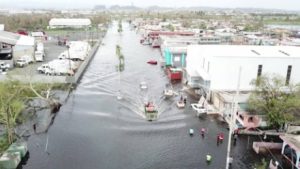

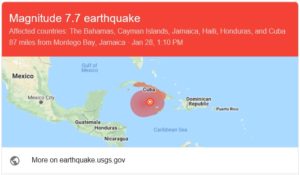
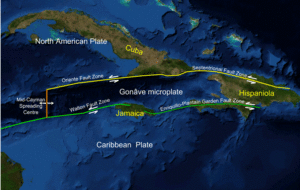
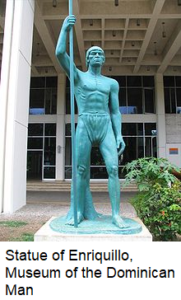 Several revolts followed in the first half of the 16th century, the most famous began in 1519. Enriquillo, one of the few remaining caciques, or indigenous chiefs, started the revolt with a large number of Taínos from the
Several revolts followed in the first half of the 16th century, the most famous began in 1519. Enriquillo, one of the few remaining caciques, or indigenous chiefs, started the revolt with a large number of Taínos from the 
 The imminent threat includes tornado landfall warning, tsunami, mudslide, volcano eruption, etc. The CU will extend this practice further by installing a standard audible siren system for any/all emergency events. A great lesson learned from the US Midwestern city of Omaha-Nebraska is the schedule for siren testing, the first Wednesday every month at 11:00am.
The imminent threat includes tornado landfall warning, tsunami, mudslide, volcano eruption, etc. The CU will extend this practice further by installing a standard audible siren system for any/all emergency events. A great lesson learned from the US Midwestern city of Omaha-Nebraska is the schedule for siren testing, the first Wednesday every month at 11:00am.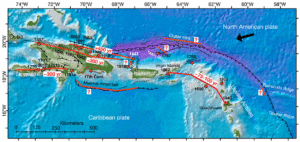
 Why is leadership so important?
Why is leadership so important?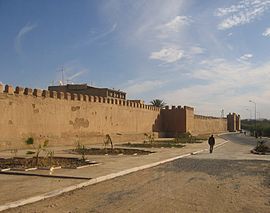


 Those countries are the exact destinations for many of the Caribbean Diaspora. The Black-and-Brown of the Caribbean had fled their homeland in search of refuge but instead have found a more
Those countries are the exact destinations for many of the Caribbean Diaspora. The Black-and-Brown of the Caribbean had fled their homeland in search of refuge but instead have found a more  That last one – pandemics – is all the rage right now. There are no Ands, Ifs or Buts, with the current Coronavirus-COVID-19 crisis, Good Leadership would do a better job of managing such a crisis. We also have to contend with policing the Police.
That last one – pandemics – is all the rage right now. There are no Ands, Ifs or Buts, with the current Coronavirus-COVID-19 crisis, Good Leadership would do a better job of managing such a crisis. We also have to contend with policing the Police. Let me start, as the Governor, by welcoming you. For those listening to us on the radio we are in the Premier’s Office and I’m joined by the Premier and the recently appointed Commissioner of Police. We also have with us the Deputy Governor, Deputy Premier, and the Executive Leadership team of the Police Force.
Let me start, as the Governor, by welcoming you. For those listening to us on the radio we are in the Premier’s Office and I’m joined by the Premier and the recently appointed Commissioner of Police. We also have with us the Deputy Governor, Deputy Premier, and the Executive Leadership team of the Police Force.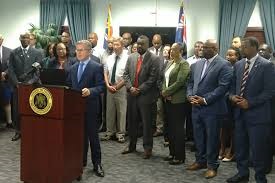 The important march on Sunday, led by our church leaders, supported by the Honourable Premier and Honourable Leader of the Opposition, which placed an emphasis on society and community, was an excellent example that these leaders, religious and secular, understand that.
The important march on Sunday, led by our church leaders, supported by the Honourable Premier and Honourable Leader of the Opposition, which placed an emphasis on society and community, was an excellent example that these leaders, religious and secular, understand that.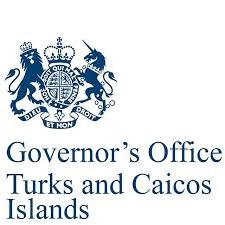 Finally TCI: we are bigger, we are better and we are stronger than allowing a small number of bad men, to bring fear into our amazing country. The stoicism we show in times of natural disaster is admirable; let’s show it now. As you hear the Commissioner and Premier speak let’s all of us assume ‘agency’, not just in observing the problem, but being a part of the wider societal solution.
Finally TCI: we are bigger, we are better and we are stronger than allowing a small number of bad men, to bring fear into our amazing country. The stoicism we show in times of natural disaster is admirable; let’s show it now. As you hear the Commissioner and Premier speak let’s all of us assume ‘agency’, not just in observing the problem, but being a part of the wider societal solution.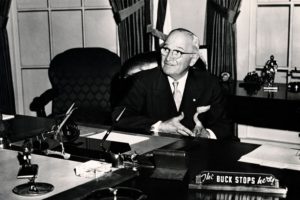 In addition to the country presenting itself as a model democracy, the Chief Government official in the US, the President of the United States (POTUS) is considered the “Leader of the Free World” – this has been the association ever since the start of the Cold War (early 1950’s)..
In addition to the country presenting itself as a model democracy, the Chief Government official in the US, the President of the United States (POTUS) is considered the “Leader of the Free World” – this has been the association ever since the start of the Cold War (early 1950’s)..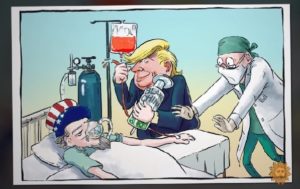
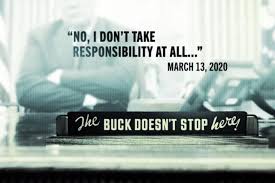
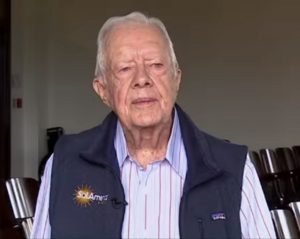 Former President Carter’s vision for clean, renewable energy proved to be far ahead of his time.
Former President Carter’s vision for clean, renewable energy proved to be far ahead of his time. Carter’s continued activism in support of renewables showcases the importance of local and individual efforts to reduce humanity’s reliance on fossil fuels, even in the
Carter’s continued activism in support of renewables showcases the importance of local and individual efforts to reduce humanity’s reliance on fossil fuels, even in the 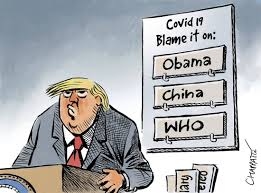
 Good Project Management = Good Leadership.
Good Project Management = Good Leadership. That is right; the typewriter was only used by secretaries, journalists and/or authors; (think Murder She Wrote
That is right; the typewriter was only used by secretaries, journalists and/or authors; (think Murder She Wrote  The Scaled Agile Framework (SAFe) is a set of organization and workflow patterns intended to guide enterprises in
The Scaled Agile Framework (SAFe) is a set of organization and workflow patterns intended to guide enterprises in  The primary reference for the scaled agile framework was originally the development of a big picture view of how work flowed from
The primary reference for the scaled agile framework was originally the development of a big picture view of how work flowed from  “It is good to be lean”.
“It is good to be lean”.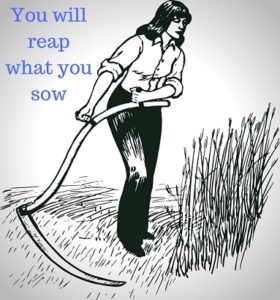 He who does nothing, makes no mistakes. – Old Adage
He who does nothing, makes no mistakes. – Old Adage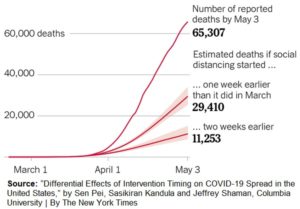 By the final days of February, many public health experts were
By the final days of February, many public health experts were 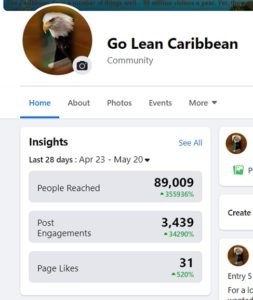
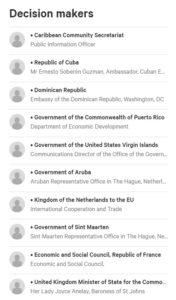
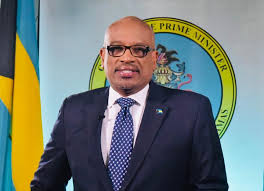




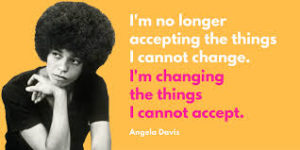

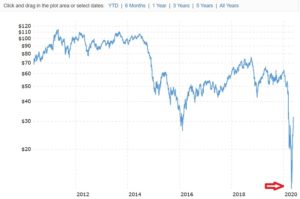
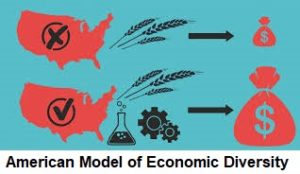
 Saudi Arabia finds itself at a significant economic crossroads. Home to the second-largest oil reserves in the world, the kingdom’s economy has been largely defined by the crude industry since drillers first struck oil in Dammam in March 1938. The discovery marked a watershed moment in the nation’s history, sparking an economic boom and propelling Saudi Arabia towards becoming one of the world’s wealthiest countries. Today, the nation is recognised as a global economic powerhouse, sitting among the G20 countries and boasting one of the highest GDPs in the Middle East.
Saudi Arabia finds itself at a significant economic crossroads. Home to the second-largest oil reserves in the world, the kingdom’s economy has been largely defined by the crude industry since drillers first struck oil in Dammam in March 1938. The discovery marked a watershed moment in the nation’s history, sparking an economic boom and propelling Saudi Arabia towards becoming one of the world’s wealthiest countries. Today, the nation is recognised as a global economic powerhouse, sitting among the G20 countries and boasting one of the highest GDPs in the Middle East. he strong urging to the Caribbean today is to:
he strong urging to the Caribbean today is to: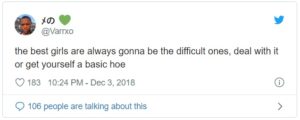


 The take-away from this foregoing “ugly” definition is that “basic is ‘plain and simple’”.
The take-away from this foregoing “ugly” definition is that “basic is ‘plain and simple’”. Thanks to the Coronavirus – COVID-19 crisis, the world is re-thinking the fulfillment of these basic needs. Believe it or not, in every jurisdiction Food Service workers are now regarded as Essential Workers. This is a fundamental change – a shift in values – for jobs that had previously been valued as inconsequential or unworthy for most, except the lowest in society; think the new immigrants (
Thanks to the Coronavirus – COVID-19 crisis, the world is re-thinking the fulfillment of these basic needs. Believe it or not, in every jurisdiction Food Service workers are now regarded as Essential Workers. This is a fundamental change – a shift in values – for jobs that had previously been valued as inconsequential or unworthy for most, except the lowest in society; think the new immigrants (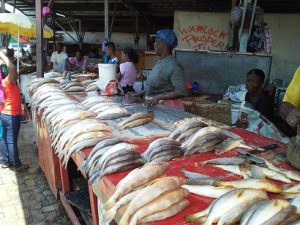 Rather than an insult, we need to be proud to be more technocratic in the fulfillment of our basic needs. “Plain and simple”, we need to:
Rather than an insult, we need to be proud to be more technocratic in the fulfillment of our basic needs. “Plain and simple”, we need to: In case you missed it:
In case you missed it: With the U.S. government declaring a state of emergency due to the coronavirus, companies are enabling work-from-home structures to keep business running and help employees follow social distancing guidelines. However, working remotely has been on the rise for a while.
With the U.S. government declaring a state of emergency due to the coronavirus, companies are enabling work-from-home structures to keep business running and help employees follow social distancing guidelines. However, working remotely has been on the rise for a while. Now for the corporate realizations and lessons-learned: perhaps businesses can accomplish Work from Home just as successfully as Work from the Office.
Now for the corporate realizations and lessons-learned: perhaps businesses can accomplish Work from Home just as successfully as Work from the Office. This is the business model for the Go Lean roadmap; while the rest of the world wrestle with the choices of which jobs to bring back to the workplace versus which jobs to allow to WFH, the Caribbean Union Trade Federation wants to present the proposals to bring those WFH jobs here. So maybe now, our Caribbean citizens can find new economic opportunities abroad without actually going abroad or abandoning the homeland.
This is the business model for the Go Lean roadmap; while the rest of the world wrestle with the choices of which jobs to bring back to the workplace versus which jobs to allow to WFH, the Caribbean Union Trade Federation wants to present the proposals to bring those WFH jobs here. So maybe now, our Caribbean citizens can find new economic opportunities abroad without actually going abroad or abandoning the homeland.